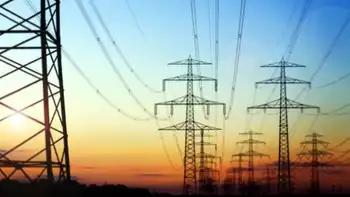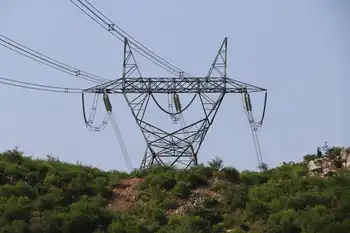Iraq signs contract with GE
BAGHDAD, IRAQ - Iraq has signed a contract with General Electric Co. worth $480 million to build three power plants and is negotiating with Hyundai to buy diesel generators, the country's electricity minister said.
Iraq faces chronic electricity shortages, with its fragile grid, battered by years of war, sanctions and neglect, struggling to keep up with increasing demand. The capital Baghdad receives only a few hours of electricity every day.
Electricity Minister Karim Waheed told journalists in Baghdad that Iraq had signed a contract with General Electric to build three power stations in southern Baghdad the southern city of Kerbala, and Taji, north of Baghdad.
"According to the plan, the work will be completed between the end of 2009 and the start of 2010," Waheed said.
Iraq has also signed two other contracts, each worth $41 million, for GE to supply spare parts for the stations, he said.
Iraq said it had signed a 179 million euro contract with General Electric to buy eight natural gas-powered generators, most of which would be installed in Baghdad.
Five years after U.S. forces invaded to topple Saddam Hussein, and with violence at a four-year low, Iraqis are pressing the government to improve service delivery. Many areas lack access to electricity or drinking water.
With the onset of summer, when temperatures can reach 50 degrees Celsius (122 Fahrenheit), demand for power will increase as people turn on their air conditioners to keep cool.
Waheed said there was a wide gap between the consumption and supply of electricity in Iraq. Demand is around 10,500 MW, far above the 5,500 MW the grid is able to supply.
The minister said a contract would be signed with South Korean company Hyundai in Istanbul, Turkey, to supply Iraq with diesel generators. He did not give a value for the contract.
He said a contract would also be inked with German engineering group Siemens in Istanbul at the same time to supply Iraq with three "gas power units". He gave no further details.
Related News

Hydro One extends ban on electricity disconnections until further notice
TORONTO - Ontario's primary electricity provider says it's extending a ban on disconnecting homes from the power grid until further notice.
Hydro One first issued the ban towards the beginning of the province's COVID-19 outbreak, saying customers needed to be able to rely on electricity while they were kept at home during the pandemic.
A spokesman for the utility says the ban was initially set to expire at the end of July, but has now been extended without a fixed end-date.
Hydro One says the move is necessary given the ongoing restrictions posed by the pandemic, as well as persistent hot weather across…




